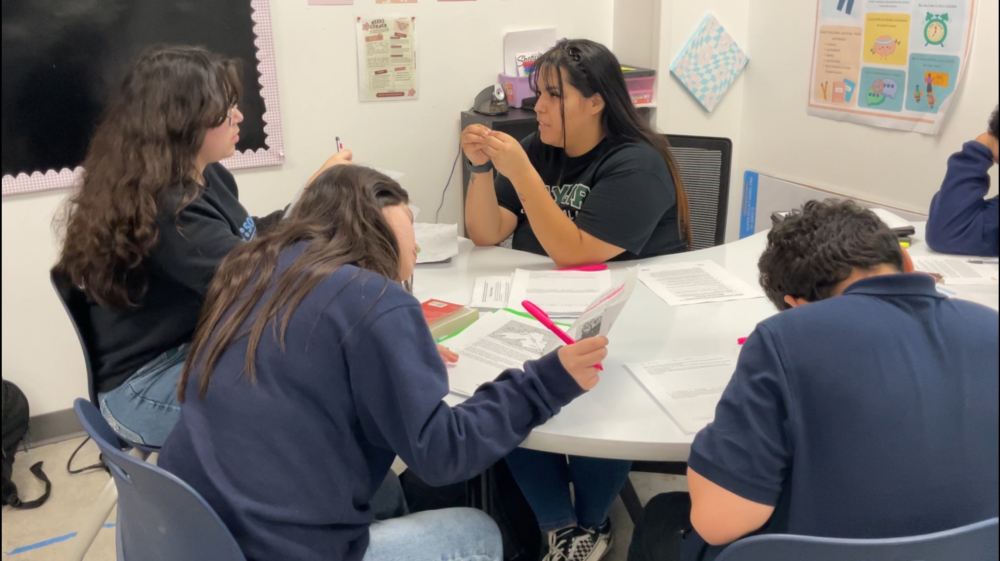The first day of May marks the beginning of Asian Pacific Islander Desi American Heritage Month! This month is all about celebrating and learning about the diverse identities, histories, and experiences of Asian Americans and Pacific Islanders.
The month of May was chosen to commemorate the immigration of the first Japanese immigrants to the United States on May 7, 1843, and to mark the anniversary of the completion of the transcontinental railroad on May 10, 1869 since the majority of the laborers who laid the tracks were Chinese immigrants. Congress passed a joint Congressional Resolution in 1978 to commemorate Asian American Heritage Week during the first week of May. The celebration was later expanded from a week long to a month long celebration in 1992.
KIPP Texas proudly celebrates APIDA Heritage Month and the theme for 2023 is “Discover Your Fire.” To start our celebration, we’d like to share some of the people who have made significant and meaningful contributions to our society and have been a part of the history and fabric of the United States.
 Cecilia Chung, Hong Kong American Civil Rights Activist
Cecilia Chung, Hong Kong American Civil Rights Activist
Cecilia Chung is an internationally recognized civil rights leader and social justice advocate. Born in Hong Kong in 1965, Chung immigrated to San Francisco in her late teens. She is a transgender woman living openly with HIV and currently serves as Senior Director of Strategic Initiatives and Evaluation of Transgender Law Center. Chung was the first transgender woman and first Asian to be elected to lead the Board of Directors of the San Francisco Lesbian, Gay, Bisexual, and Transgender Pride Celebration. Through her advocacy and philanthropic work, Chung has established herself as one of the country’s most important voices in anti-discrimination, transgender rights, and HIV/AIDS education and awareness.
 Ang Lee, Filmmaker
Ang Lee, Filmmaker
Taiwanese American filmmaker Ang Lee has the unique distinction of being the first non-white director to win an Oscar for directing as well as producing and directing Academy Award-winning films performed in Chinese and English. Having been nominated for a total of nine Academy Awards, Lee has won three: Best Foreign Language Film for Crouching Tiger, Hidden Dragon (2000) as well as Best Director for Brokeback Mountain (2005) and Life of Pi (2012). Born in Chaozhou, Taiwan, in 1954, Lee came to the U.S. to study film, and he received an MFA from New York University’s Tisch School, where he was a classmate of filmmaker Spike Lee. Ang Lee is considered by many to be among the most accomplished and influential filmmakers of his generation.
 Dr. Chien-Shiung Wu, Chinese American Nuclear Physicist
Dr. Chien-Shiung Wu, Chinese American Nuclear Physicist
Known as the “Chinese Marie Curie” and the “Queen of Nuclear Research,” Dr. Wu was born in Jiangsu Province, China, in 1912, and moved to the U.S. in 1939 to pursue her Ph.D. at the University of California, Berkeley. As an experimental physicist, Dr. Wu made significant contributions to the study of nuclear physics, and as a member of the research staff at Columbia University, she played a critical role in the Manhattan Project, the research and development consortium led by the United States, Canada, and the United Kingdom that created the first nuclear weapons. Dr. Wu was the recipient of the inaugural Wolf Prize in Physics and was the first woman to serve as president of the American Physical Society.
 Kalpana Chawla, Indian American Astronaut and Engineer
Kalpana Chawla, Indian American Astronaut and Engineer
Kalpana Chawla was the first woman of Indian descent to go to space, having served as a mission specialist and primary robotic arm operator on the space shuttle Columbia. Sadly, Chawla was one of the seven crew members who died when the spacecraft disintegrated during its re-entry into the Earth’s atmosphere in 2003 following the space shuttle Columbia’s 28th mission. Chawla was posthumously awarded the Congressional Space Medal of Honor, and several streets, universities and institutions have been named in her honor. She is regarded as a national hero in India, where she was born in East Punjab, in 1962.
 Dalip Singh Saund, Indian American Congressman
Dalip Singh Saund, Indian American Congressman
Born in Punjab, India, in 1899, Saund emigrated to the U.S. via Ellis Island in his early 20s to further his education. He subsequently earned both master’s and doctoral degrees in mathematics from the University of California, Berkeley. After becoming a naturalized U.S. citizen in 1949, Saund ran for and won various positions in local government in Stockton, California. In 1955, he announced his campaign to run for the U.S. House of Representatives as a Democrat, a seat he would go on to win twice, which made him the first Sikh American, the first Asian American, and the first Indian American to be elected to the U.S. Congress.
We hope you learned something new and invite you to join us all month long on our social media platforms as we celebrate and share the historical and cultural contributions of Asian Pacific Islander Desi American people. Make sure you’re following us on social media as we share exciting happenings at our schools and other notable figures throughout the month!


